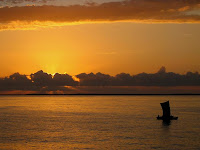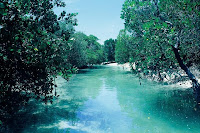Thursday 28th November
17:02 (UK) / 20:02 (Madagascar)
I always swore to myself that I would never write a blog; it was too trendy, and perhaps reveals a little too much about a person, but today I have reassessed my opinion. Here commences the first of many BVCO blogs – I know the excitement is intense! It may turn out to be a rather boring tale, but I hope it will give some insight into the workings of a small not for rofit carbon offsetting organisation, along with an insight into Blue Ventures as a whole, the location in which BV works, and my own personal travels and experiences as a vegan abroad.

So today I start this blog malarkey at the beginning of an exciting phase for myself and for Blue Ventures Carbon Offset. I have set out on a month’s trip to Madagascar to strengthen relationships with project partners, set in place a new, improved and evolving monitoring tool that we hope can be used by other carbon reducing stove programmes worldwide, along with training up new staff members and bonding with the team as a whole. This will be the first time we have all met in person. Before now our programme has been successfully operating with remote co
mmunication; but now with a new site coordinator starting the time has come for me to bite the 2.5 tonnes of carbon dioxide bullet and make the journey.
After offsetting the flights with a solar stove in Andavadoaka, I set off from Heathrow yesterday evening for Mauritius. Most people travel via Paris, however my previous two encounters have been less than favourable, and so I opted for the exotic route. The plane was full – good for my carbon footprint but bad for my legs and the woman next to me on the window seat had possibly the smallest bladder in the world! Loads of sleep for me! The transfer was smooth and easy – there were only 3 planes in the entire airport and I was the only one meeting any connecting flight. I took them by surprise so much that I had to wait half an hour for someone to show to give me a boarding pass.
Food so far had not been a problem, with Air Mauritius providing an equally average non meat / dairy alternative on the first flight. On the second I thought I was in for even more luck a vegan sandwich – some weird vegetables…vegetables that were perhaps a bit to meaty for my liking. I confronted the air hostess about this meaty vegetable that tasted and smelt remarkably like chicken. She declared that it was indeed a meaty tasting vegetable. I didn’t believe her or the VML label, so stopped eating it. Spent at least half an hour worried I’d eaten chicken, but then realised there were more important things – like the carbon footprint of that ‘remarkably like chicken, but not chicken’ sandwich – think packaging, raw material transport and now it’s location 15000ft above sea level powered by jet fuel. Good bread anyways.
Right, back to the story – so anyways landing and taking off all good; buying visa- all good 13 Euros and very quick; bags – all turned up (amazing as the last 2 times I have come to Tana I’ve lost at least one bag – I put it down to avoiding Paris); bags through customs – fine; meeting Dave Raza – great; money changing – fantastic (but not euros / Rands) and then the cherry on the top – the Blue Ventures freight
that I am meant to be escorting overland has also arrived on the plane I was on. It will take a couple of days but at least it’s here.
Now I am writing this from my B&B room at the place BV now recommends. I have my own hot shower and sink (very excited), and bed and desk. I will be here for a couple of days, so it is good it will be able to do some work easily also. Unpacked and showered. Feel shattered but the excitement of this new blog thing is too much!

It is great to feel like I am going back to my roots. Madagascar changed me a lot 5 years ago when I was here as a research assistant with Frontier, and taught me a lot too, both then and following year. Now coming back to see a project that I help to start up 4 years ago back when I led the Oxford University Coral Awareness Research Expedition to conduct exploratory dives around the reefs of Andavadoaka (yes – we were all very aware of coral), is well, rather weird. And of even greater excitement is going to see the solar and energy efficient stove programme that I have poured my heart and sweat into over the last year. So much potential for the project and I hope that this trip will help to achieve that – start the wheels turning for beneficial, well monitored, fuel and carbon reducing stove projects to spread across this isle.
17.45 (UK), Bedtime (Madagascar)…Until next time- turn off those stand-bys and don’t even think about opening that window if the radiator is on!
Much love to all (especially you… and you! x),
Ellie xxx
Blue Ventures Carbon Offset
 fishermen etc. They sang and danced for us, spoke to us and then gave us a cake (with icing on – causing much excitement!)
fishermen etc. They sang and danced for us, spoke to us and then gave us a cake (with icing on – causing much excitement!)














